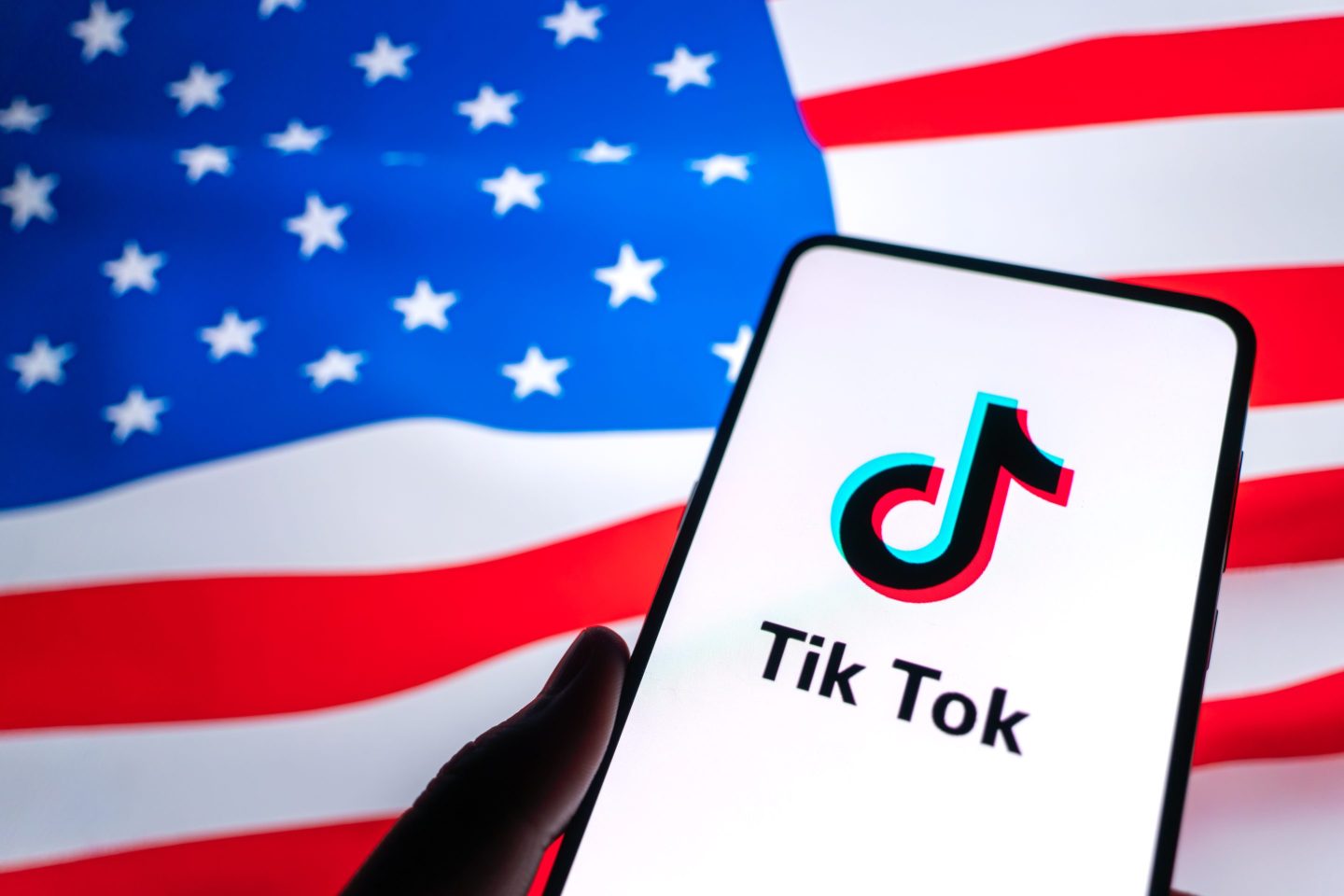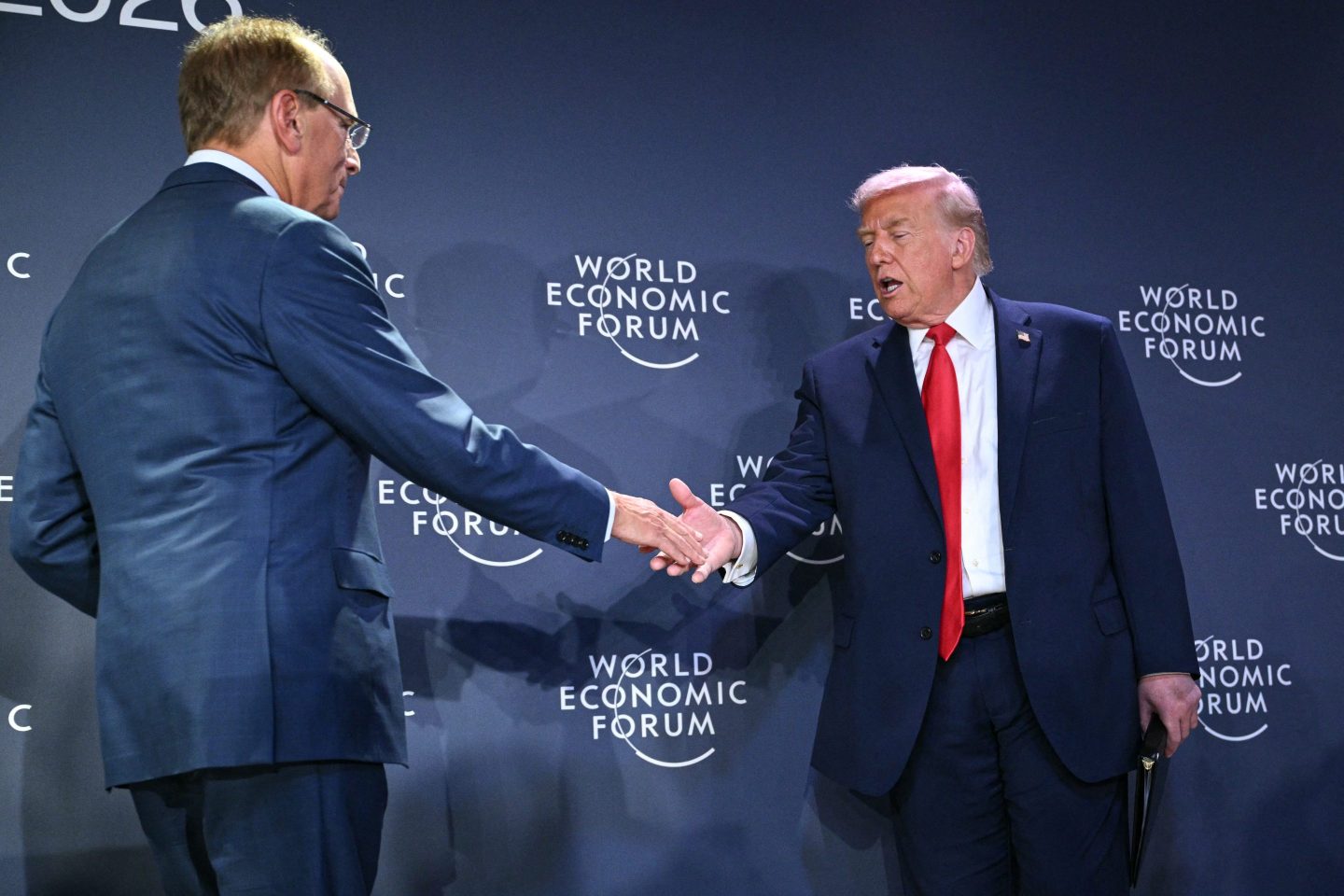- In today’s CEO Daily: Diane Brady talks to Andrew Anagnost, CEO of Autodesk.
- The big story: Trump threatens to assassinate Iranian supreme leader.
- The markets: Mixed and volatile ahead of the Fed.
- Analyst notes from Oxford Economics on China lowering tariffs for Africa, Pantheon on slowing U.S. home sales, EY-Parthenon on retail sales, and Macquarie on the weak dollar.
- Plus: All the news and watercooler chat from Fortune.
Good morning. The use case for AI is not always obvious in the here and now. Sixty-nine percent of the customers surveyed in Autodesk’s latest State of Design and Make report said they think AI is going to enhance their industry—but that’s actually a 12% drop from 2024. (A higher number did say they need to hire people with AI skills.)
“A year ago, it was like, oh my God, it’s going to change everything,” Andrew Anagnost, CEO of Autodesk, recently told me. “Now, they’re less optimistic about it changing their industry.”
Autodesk formed in 1982 for the launch of AutoCAD, which transformed architecture’s reliance on hand-drawn images to computer-aided design. But today, the architecture, engineering and construction industry spends less than a third of what the manufacturing sector spends on technology.
Who can blame them? Change comes slow in this realm. Few industries are as bogged down in a complex mix of permits, materials, stakeholders, talent, regulations, and politics, which all need to be aligned, to get things done. More generally, only a minority of white-collar workers—27%—say they use AI at least weekly, according to Gallup. Only 9% of blue-collar workers say the same.
So a key part of Anagnost’s strategy is to be an AI evangelist, preaching the use-cases and joy to customers. That includes trying to inspire people on the front lines with a vision of how much more “interesting, fulfilling and exciting” their work can now be.
“It’s not just people sitting in a dark room, building 3D models on computers in dark mode. People on the construction site and inside the factory are working differently, planning differently,” he said.
One note: In writing about Cushman & Wakefield CEO Michelle MacKay yesterday, I said former CEO John Forrester convinced her to leave the board to become COO when it was Forrester’s predecessor Brett White. Apologies for the mistake. More news below.
Contact CEO Daily via Diane Brady at diane.brady@fortune.com
Top news
Regime change on the table
The FT reported that White House officials were actively debating whether to support Israel militarily in the conflict. Only the U.S. has bunker buster bombs powerful enough to reach Iran’s deeply buried nuclear assets. And with Israel now in complete control of Iran’s airspace, “regime change” in Tehran is now on the table. Iranian Supreme Leader Ayatollah Ali Khamenei vowed revenge in a post on X. Live coverage from the BBC here.
The Fed will likely keep interest rates on hold today
But Federal Reserve Chairman Jerome Powell’s remarks will be closely analyzed for changes of tone—and that can move markets.
Meta is offering $100 million sign-on bonuses
OpenAI chief executive Sam Altman says Mark Zuckerberg is so desperate for AI developers that the sky is the limit in competing compensation offers.
NYC mayoral candidate arrested
Brad Lander was detained by law enforcement agents while trying to escort an immigration court defendant. He is the city’s comptroller, its highest finance official. The arrest comes days after Senator Alex Padilla was arrested while trying to ask questions at a press conference held by Homeland Security chief Kristi Noem. A total of five elected officials who are Democrats have been arrested this year, according to Axios.
Amazon CEO warns of AI-induced job cuts
Amazon CEO Andy Jassy wrote in a company-wide email on Tuesday that he expects the company’s workforce to shrink as the company moves to “using AI extensively.” Fortune’s tech correspondent Jason Del Rey breaks down why Jassy’s persistent cost-cutting focus makes him the right Amazon CEO for the AI era.
Walgreens’ fall from grace
The past decade has seen Walgreens shrink from a leading pharmacy retailer worth $100 billion to agreeing to a $10 billion private equity buyout. Here’s how a string of misguided acquisitions and policies like locking up front-of-store products has caused the company to fall out of favor with investors and consumers.
The problem with Bitcoin treasury companies …
Auditing a company that holds Bitcoin on its balance sheet is much, much more complicated than you would think.
The markets
- S&P 500 futures rose 0.36% this morning even though the index itself sunk 0.84%, ending below 6,000 again yesterday, at 5,982.72. The VIX volatility index was up 9% this morning. Japan’s Nikkei 225 was up 0.9%. China’s SSE Composite was flat. The Stoxx Europe 600 was flat in early trading. The U.K.’s FTSE 100 was up 0.2% in early trading. Hong Kong’s Hang Seng was down more than 1%.
From the analysts
- Oxford Economics on China lowering tariffs for Africa: “China’s removal of tariffs on most African exports boosts the continent’s trade potential while expanding Beijing’s influence. As the US retreats and turns its focus inward, China’s economic incentives deepen ties, reinforcing it as Africa’s key partner. This shift may weaken the US's leverage and reshape global alliances in China’s favour, despite risks from its slowing economy,” per Brendon Verster.
- Pantheon Macroeconomics on slowing home sales: “Elevated new mortgage rates and heightened uncertainty about the economic outlook are greatly dampening demand for new homes. The headline NAHB index fell to its lowest level since December 2022, driven by two-point declines in the current home sales, expected home sales and traffic of prospective buyers indexes, to 35, 40 and 21, respectively. Our second chart shows that the expected sales index is consistent with a material further decline in housing starts, which alongside weak demand will be weighed down by the mounting inventory of unsold homes too,” per Samuel Tombs.
- EY-Parthenon on retail sales: “May’s slowdown suggests that consumer confidence is still rocky, with inflation pressures and tariff uncertainty continuing to prompt Americans to delay or reduce how much they spend. The early boost from tariff-related buying is fading, with households shifting focus to essentials and value,” Will Auchincloss.
- Macquarie on the dollar: “The Iran-Israel War has put a mild 'safe haven' bid under the USD for now. But in the background still lurk the conditions and trends that has spurred allocators away from the USD. To wit, the US is likely to move toward new "strategic" tariffs (e.g., on pharmaceuticals), and the growth outlook in the rest of the world is no longer deteriorating vs, the US's,” per Thierry Wizman and Gareth Berry.
Around the watercooler
The smallest country on the Southeast Asia 500 generated the most revenue by Lionel Lim
The ‘Godfather of AI’ says this sector will be safe from being replaced by tech—but even then, only the ‘very skilled’ will hold down a job by Emma Burleigh
Ethereum critics say it has failed—but boosters say cryptocurrency has become ‘digital oil’ by Ben Weiss
Mark Cuban says work-life balance is a luxury ambitious people can’t afford because ‘there’s someone out there working 24/7 to kick your ass’ by Preston Fore
CEO Daily is compiled and edited by Joey Abrams and Jim Edwards.













